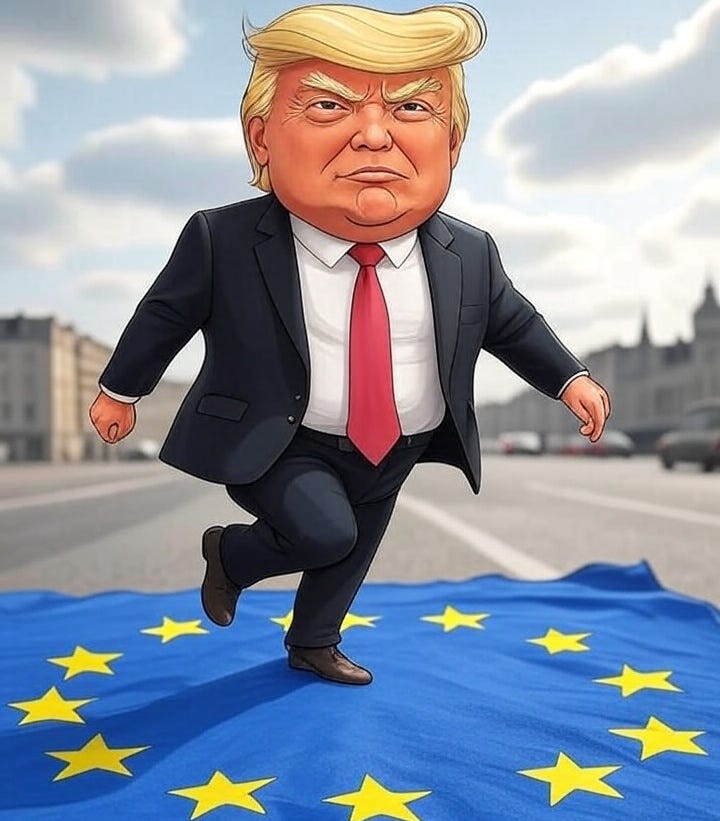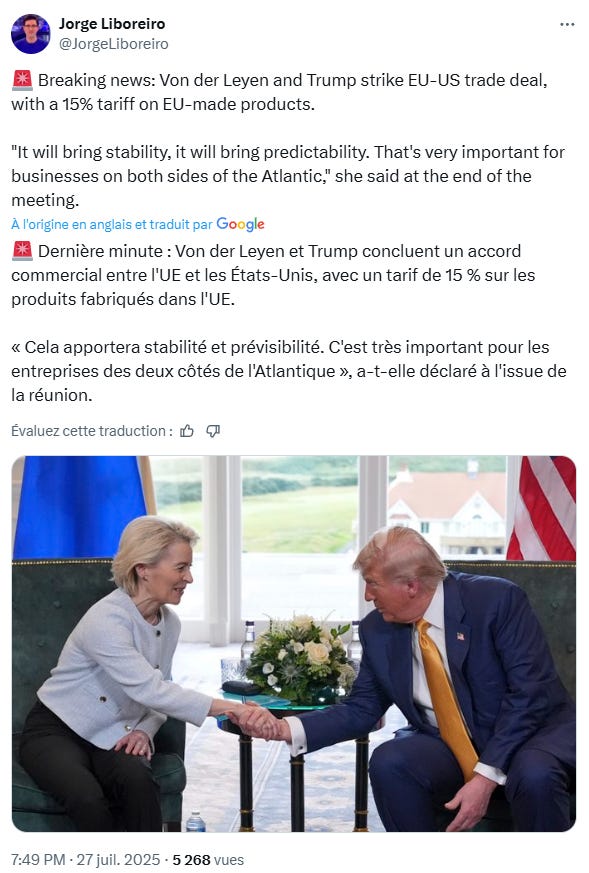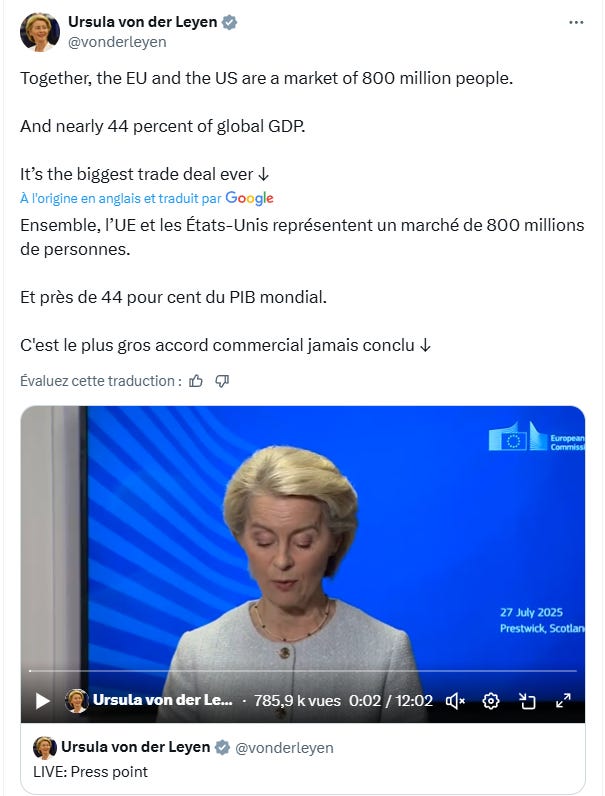[ Editorial ] European Carpet
The European Commission and the EU faced a double blow, as both China and the United States delivered sharp rebukes.
The European Union's institutions are bloated, redundant, and drain resources. Run by inept leaders, they proved last week to be outright detrimental to the bloc’s Member States.
China held a meeting with the European Commission, with every member in attendance. The Chinese, masters of diplomatic nuance, used the occasion to deliver a stinging lesson: the EU is not a sovereign nation, and its Commissioners are little more than contacted civil servants. Gone was the pomp and ceremony reserved for true heads of state. Instead, the Commissioners were herded into a bus like tourists, left to disembark without so much as a single Chinese official to greet them. The humiliated expressions on these self-important figures told the story—they were rudely awakened to their true status as mere passengers on a carefully orchestrated diplomatic slight.
Then there’s the trade deal fiasco with the United States. Donald Trump stomped all over the European Commission with unrestrained delight, treating it like a diplomatic doormat—and, frankly, it’s hard to blame him when the target is so spineless.
The Commission aimed high, hoping for zero customs duties, grudgingly willing to accept up to 10%. Trump slapped them with a 15% rate, and they had no answer. Shockingly, the Eurocrats didn’t even have a BATNA—a “best alternative to a negotiated agreement”—a fallback plan to protect the EU’s interests if talks collapsed. All their grand rhetoric about countermeasures and retaliation? Nothing but hot air, hollow bravado that crumbled under pressure.
To justify its humiliating defeat, the European Commission clings to claims of “stability” brought by this lopsided deal, conveniently ignoring that international trade disputes are meant to be resolved at the World Trade Organization.
Centralizing trade policy at the European level, far from being a strength, exposes glaring vulnerabilities. The interests of the EU’s Member States are far from aligned, creating a fractured front. Take German automakers, who ship cars to the U.S., versus Franco-Italian Stellantis, which builds vehicles stateside (think Chrysler, Jeep, RAM). American tariffs, aimed squarely at Germany’s trade surplus, end up sideswiping the agri-food exports of France, Italy, and Spain, leaving them collateral damage in a fight they didn’t pick.
This top-down approach cripples any chance of a sharp, effective counterstrike. If each of the 27 Member States could tailor its own retaliatory measures to its unique trade landscape, the U.S. would feel the sting far more acutely. Trying to slap uniform tariffs on 27 diverse economies would be a political and logistical nightmare, forcing Washington to negotiate individually with each state. The resulting chaos would skyrocket transaction costs, rendering tariffs more trouble than they’re worth.
Eurocrats are still obsessed with size. Why? Simply because the only power of European institutions is regulatory. Their interest lies in over-regulating the largest possible economic area to leverage what’s known as the Brussels Effect. Standards imposed in a market the size of the European Economic Area tend to be adopted by the rest of the world. This can sometimes be beneficial, such as with vehicle emission standards, partially adopted by India and China, which found a proven, effective, ready-to-use system at very low cost, because they didn’t have to design it.
However, this regulatory obsession is, in most cases, harmful, particularly when it comes to innovation. The theory of the social shaping of technology shows that what becomes the standard is not the most advanced or efficient solution—the “ideal” solution in the eyes of bureaucrats—but the one most widely adopted by the market. A famous example is the competition between two video cassette formats in the mid-1970s: Betamax and VHS. Betamax was of far superior quality, but its cassettes and recorders were more expensive to manufacture and recording time of maximum one hour did not meet the needs of consumers. Furthermore, Sony refused to license Betamax . As a result, VHS won over consumers, while Betamax was adopted by professionals.
As we stated last February, we do not need the European Commission, the European Parliament, or the Court of Justice of the European Union to manage a single market and conduct joint policies. European institutions are organized according to the principles of French centralizing Jacobinism, and the prevailing ideology among the European civil service is German ordoliberalism. How, then, can we be surprised that the EU’s only horizon is authoritarianism, if not totalitarianism,?






